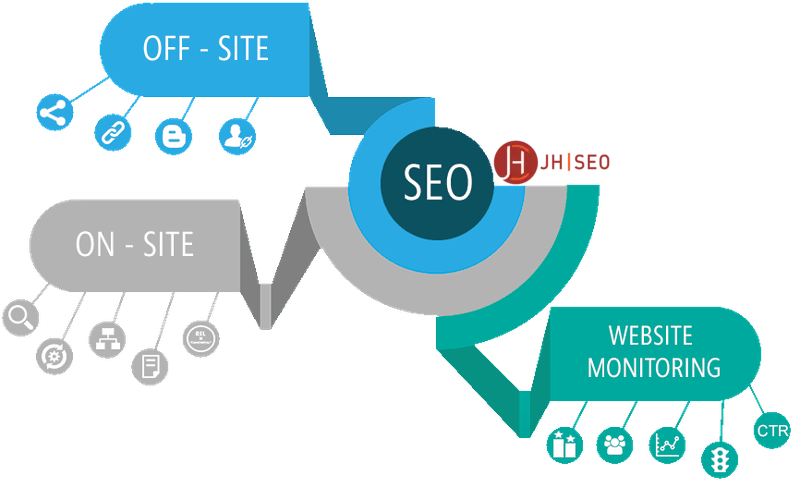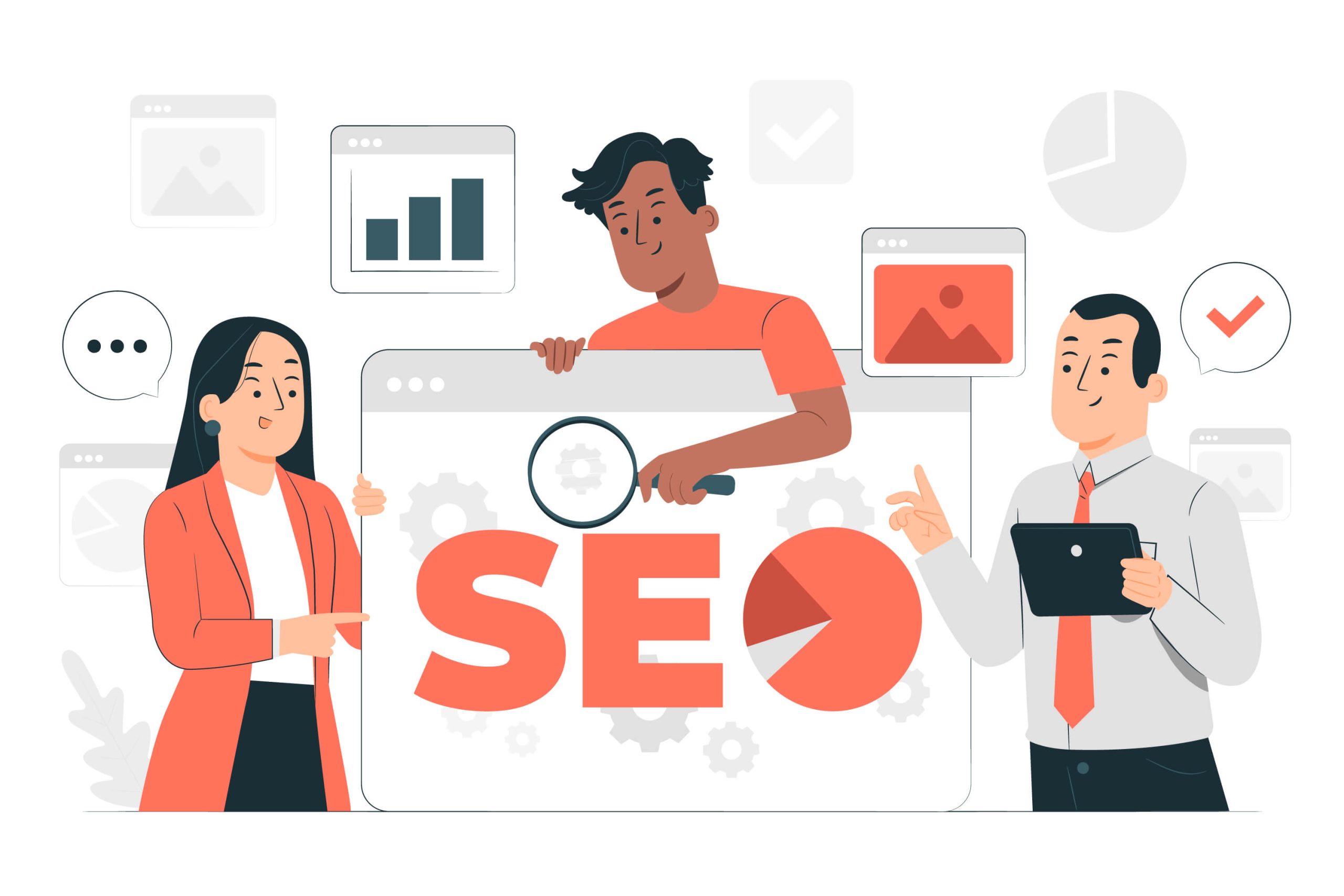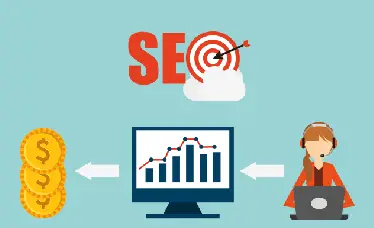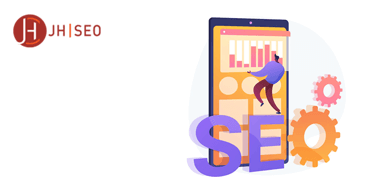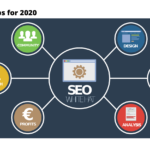The hectic digital marketing world calls for efficient Search Engine Optimization (SEO). SEO is the art of fine-tuning your website to achieve higher rankings on search engine results pages, which makes it easier for potential customers to discover your business. For small enterprises, leveraging effective SEO techniques can be transformative, driving relevant traffic to your site and significantly enhancing your online presence. By embracing strategic SEO practices, you not only boost your visibility in search results but also build your business’s authority and attract more engaged customers.
Discover how to boost your small business SEO. Learn the best strategies with us!
Understand Your Audience and Keywords
Researching and Identifying Your Target Audience
To effectively boost your SEO, you first need to understand who your target audience is. Start by analyzing your current customers and identifying their demographics, interests, and search behaviors. Tools like Google Analytics and social media insights can provide valuable information about your audience’s preferences and online habits.
Conducting Keyword Research for Relevant Terms
Keyword research is the foundation of any successful small business SEO strategy. Identify the terms and phrases your potential customers are using when searching for products or services similar to yours. Use keyword research tools such as Google Keyword Planner, SEMrush, or Ahrefs to find relevant keywords with good search volume and manageable competition.
Using Keyword Tools Effectively
Keyword tools can help you discover not only high-ranking keywords but also long-tail keywords that are less competitive but highly specific. Incorporate these keywords into your content, titles, and meta descriptions to increase your chances of ranking higher in search results.
Incorporating Keywords into Content, Titles, and Meta Descriptions
Once you’ve identified the right keywords, use them strategically throughout your website. Include primary keywords in your titles, meta descriptions, and throughout your content. However, ensure that the incorporation of keywords feels natural and enhances the readability of your content.
Optimize Your Website Structure
Importance of a User-Friendly Website Structure
A well-organized website structure is crucial for both user experience and SEO. A clean, intuitive layout helps visitors find what they’re looking for quickly and encourages them to stay longer on your site. This positive user experience can lead to higher rankings on search engines.
Creating an Intuitive Navigation Menu
Design your navigation menu to be simple and user-friendly. Ensure that key pages are easily accessible and that users can quickly navigate between sections of your site. A clear navigation structure not only helps users but also helps search engines crawl and index your site more effectively.
Using Header Tags (H1, H2, etc.) Effectively
Header tags (H1, H2, etc.) help organize your content and make it easier for users and search engines to understand the structure of your pages. Use H1 tags for your main headings and H2, H3, etc., for subheadings. This not only improves readability but also helps with SEO by highlighting important keywords.
Implementing Internal Linking Strategies
Internal linking connects different pages on your website, helping users navigate and discover related content. It also allows search engines to understand the hierarchy and relationship between your pages. Create a thoughtful internal linking strategy to boost your site’s SEO and keep visitors engaged.
Create High-Quality, Engaging Content
Writing Valuable and Relevant Content
Content is at the heart of SEO. Craft valuable, relevant content that addresses the needs and interests of your target audience. Whether it’s blog posts, articles, or product descriptions, ensure your content provides real value and answers questions your audience might have.
Incorporating Keywords Naturally
While incorporating keywords into your content is important, it’s equally crucial to ensure that they are used naturally. Avoid keyword stuffing, which can negatively impact readability and user experience. Focus on creating content that flows well and integrates keywords seamlessly.
Using Multimedia to Enhance Engagement
Enhance your content with multimedia elements such as images, videos, and infographics. These elements can make your content more engaging and shareable, and they can also improve your SEO by providing additional opportunities for keyword optimization through alt text and descriptions.
Updating and Refreshing Old Content
Regularly updating and refreshing your existing content can help maintain its relevance and effectiveness. Review older posts to ensure they are still accurate and up-to-date, and make improvements as needed. Fresh content signals to search engines that your site is active and valuable, which can positively impact your rankings.
Improve On-Page SEO
Optimizing Title Tags and Meta Descriptions
Title tags and meta descriptions are fundamental components of on-page SEO. The title tag appears in search results as the clickable headline for a given result, while the meta description provides a brief summary of the page’s content. Ensure that your title tags are descriptive, include relevant keywords, and are kept within 60 characters. Meta descriptions should be engaging and provide a compelling reason for users to click through, typically within 160 characters. Both elements should accurately reflect the content of the page and entice users to visit.
Ensuring Mobile-Friendliness and Fast Loading Times
With an increasing number of users accessing websites via mobile devices, having a mobile-friendly website is essential. Ensure your site is responsive, meaning it adjusts seamlessly to different screen sizes. Additionally, fast loading times are crucial for retaining visitors and improving search engine rankings. Optimize images, leverage browser caching, and minimize server response times to enhance your website’s performance.
Implementing Alt Text for Images
Alt text (alternative text) describes the content of images and helps search engines understand what they depict. It’s also important for accessibility, providing descriptions for visually impaired users. When creating alt text, use descriptive and relevant keywords, but avoid keyword stuffing. Aim for clear, concise descriptions that accurately reflect the image content.
Using Schema Markup for Better Search Engine Understanding
Schema markup is a type of code that helps search engines understand the context of your content. By implementing schema markup, you can enhance your search listings with rich snippets, such as star ratings, product prices, or event details. This can improve click-through rates and provide users with more information directly in search results. Utilize tools like Google’s Structured Data Markup Helper to add schema markup to your site.
Build and Maintain Quality Backlinks
Importance of Backlinks in SEO
Backlinks, or inbound links, are links from other websites pointing to your own. They signal to search engines that your content is valuable and trustworthy. High-quality backlinks from reputable sites can significantly improve your site’s authority and search engine ranking. However, the quality of backlinks is more important than quantity.
Strategies for Acquiring High-Quality Backlinks
To build a strong backlink profile, focus on acquiring links from authoritative and relevant websites. Strategies include guest blogging on reputable sites, creating shareable content such as infographics or industry reports, and reaching out to influencers or industry experts for collaborations. Additionally, consider listing your site in reputable directories and participating in industry-related forums.
Avoiding Black-Hat Techniques and Focusing on Ethical Practices
Avoid black-hat SEO techniques, such as buying links or using link farms, as these can lead to penalties from search engines. Instead, focus on ethical practices that build your site’s reputation naturally. Quality content, genuine outreach, and earning links through merit will yield better long-term results.
Monitoring and Managing Your Backlink Profile
Regularly monitor your backlink profile to ensure that you maintain a healthy link environment. Use tools like Google Search Console or Ahrefs to track your backlinks and identify any harmful or low-quality links. Disavow any spammy links that could negatively impact your SEO performance.
Leverage Local SEO
Setting Up and Optimizing Google My Business Profile
Google My Business (GMB) is a free tool that helps you manage your online presence across Google, including Search and Maps. Setting up and optimizing your GMB profile is crucial for local SEO. Ensure that your business information is accurate and complete, including your address, phone number, hours of operation, and website URL. Add high-quality images and regularly update your profile with posts and offers to engage local customers.
Encouraging and Managing Customer Reviews
Customer reviews play a significant role in local SEO and influence potential customers. Encourage satisfied customers to leave positive reviews on your GMB profile and other review platforms. Respond to reviews, both positive and negative, to show that you value customer feedback and are committed to improving your services.
Local Citations and Directory Listings
Local citations are mentions of your business’s name, address, and phone number (NAP) on other websites. Ensure that your business information is consistently listed across local directories and review sites. Accurate and consistent citations can help improve your local search rankings and enhance your credibility.
Using Local Keywords and Creating Location-Specific Content
Incorporate local keywords into your website content, titles, and meta descriptions to improve your visibility in local search results. Create content that is specific to your location, such as blog posts about local events or guides related to your area. This helps search engines understand your relevance to local searches and attracts customers in your vicinity.
Boost your small business’s search rankings with proven Local SEO methods. Get in touch!
Monitor and Analyze SEO Performance
Tools for Tracking SEO Performance
Effective SEO management starts with monitoring your performance to understand how well your strategies are working. Tools like Google Analytics and Google Search Console are essential for tracking various aspects of your SEO efforts. Google Analytics provides insights into website traffic, user behavior, and conversion rates, while Google Search Console offers data on your site’s performance in search results, including impressions, clicks, and average ranking positions.
Analyzing Traffic, Rankings, and User Behavior
Regularly analyzing your traffic data helps you gauge the effectiveness of your SEO strategies. Look at metrics such as organic search traffic, bounce rates, and average session duration to assess user engagement. Additionally, monitor your keyword rankings to see how well you’re performing for targeted search terms. Pay attention to user behavior on your site to identify any obstacles or areas for improvement, such as high bounce rates on specific pages.
Making Data-Driven Adjustments and Improvements
Use the data collected from these tools to make informed decisions about your SEO strategy. Identify patterns and trends in your performance data to determine what’s working and what needs adjustment. For example, if certain keywords are underperforming, consider refining your keyword strategy or improving the related content. Regularly review your SEO metrics and be prepared to make data-driven adjustments to enhance your overall performance.
Stay Updated with SEO Trends and Best Practices
Keeping Up with Algorithm Updates and Industry Changes
Search engine algorithms are constantly evolving, and staying updated with these changes is crucial for maintaining your SEO effectiveness. Major search engines like Google frequently update their algorithms to improve search results and user experience. Keeping abreast of these updates helps you adapt your strategies to align with new ranking criteria and avoid potential penalties.
Following Reputable SEO Blogs and Forums
To stay informed about SEO trends and best practices, follow reputable SEO blogs and forums. Websites like Moz, Search Engine Journal, and Neil Patel’s blog provide valuable insights, tips, and updates on SEO developments. Engaging with these resources will help you stay ahead of industry changes and implement new strategies effectively.
Continuous Learning and Adapting to New SEO Strategies
SEO is a dynamic field that requires continuous learning and adaptation. Regularly educate yourself on new techniques, tools, and strategies by participating in webinars, online courses, and industry conferences. As SEO practices evolve, being proactive about learning and implementing new methods will ensure your small business remains competitive and maintains a strong online presence.
Maximize your small business’s online presence with effective SEO techniques. Start now and Contact Us or 2138949220!
Boosting your small business SEO involves a strategic approach that encompasses both ongoing monitoring and staying updated with the latest trends. By utilizing tools like Google Analytics and Google Search Console, you can effectively track your SEO performance, analyze key metrics, and make data-driven adjustments. Staying informed about algorithm updates and industry changes, along with continuous learning, ensures that your SEO strategies remain relevant and effective.
Implementing these strategies and regularly reviewing your SEO efforts will not only enhance your online visibility but also drive more targeted traffic to your site. SEO is a vital component of your small business’s digital success, and maintaining a proactive approach will help you stay competitive in an ever-evolving market. Remember, the impact of SEO extends beyond rankings—it builds credibility, attracts potential customers, and contributes to long-term business growth. Embrace these practices, stay engaged with industry developments, and watch your small business thrive online.


















































































































































